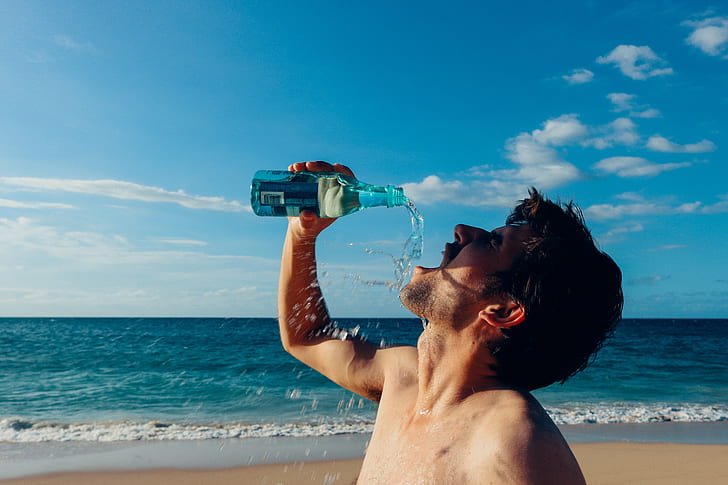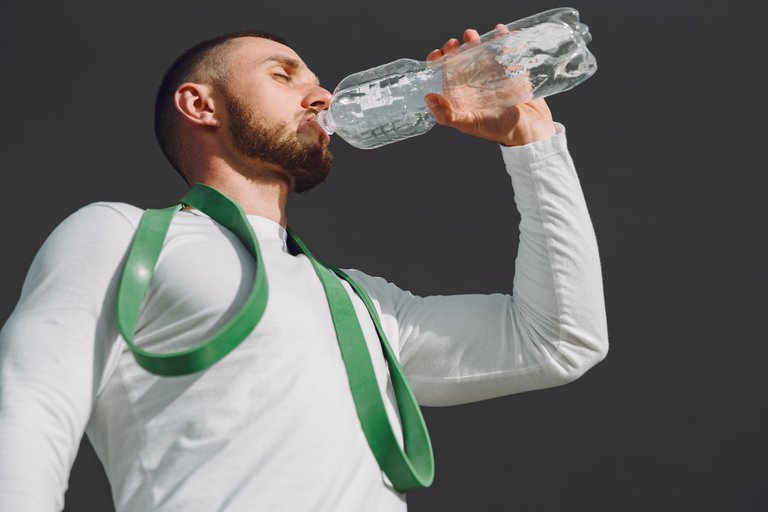Balancing Hydration: How Much Water and Electrolytes Do We Really Need?
We all know water and electrolytes are good for us, if you read health magazines and listen to interviews with health expert, they do not forget to preach the importance of drinking water as much as possible, and we are keen to listen to them since they are the professionals. But why we all want to grab that jug and completely empty its water content, as well as empty that electrolyte bottle since we are following health advise, one question that we might want to ask is "How much water is enough water to keep us healthy?" How much water will really keep us hydrated instead of drowning in it or suffer from water overdose.
The brain is made up of billions of neurons connected by nerves, and these nerves are wrapped in connective tissues where they send electrical signals to themselves. In the human body, asides Oxygen and Nitrogen that are common needs, the body also need elements like Magnesium, Calcium, Potassium, Sodium, and Calcium. These atoms do not exist in their neutral state, they exist with a charge known as Ions which can be positive or negative depending on whether it has more electron than proton or vice versa.
Elements like Potassium and Sodium lose electrons so as to become stable and are positive ions while atoms like Chlorine are negative ions. When we talk about electrolytes, we are talking about cases where ions like Sodium, and Potassium are put in water. They are regarded as electrolytes because they have the ability to conduct electric current in water.
Since humans are made up of mostly water, it helps explain how our neurons generate electrical signals known as action potential since they pump in and out electrolyte creating different charges inside the neuron as well as outside the neuron. It is not only the nervous system that uses electrolyte, even our muscles use them as we need electrolyte to contract and relax our muscles.
Water is a universal solvent, and it is critical for physiological processes in the body, as well as transporting materials in the body and thermal regulation. It provides moisture for certain regions in the body that require to be moist as well as is found in areas where object need protecting and cushioning like in Cerebrospinal fluid for the brain, and synovial fluid in joint cartilages.
Electrolyte on the other hand is very vital in the human body for different purposes including helping in the distribution of water in the body, as well as they allow our neurons to function properly. In the aspect of water distribution, water flows towards region of greater mount of solute or electrolyte via osmosis. Water is found in the intravascular space, the intracellular space, and the Intrastitial space.
If there is too much fluid in the intrastitial space, it can lead to visible swelling known as edema, too much fluid in the intravascular space would lead to increased blood pressure, and if there is too much water in the intracellular space, it can lead to the swelling of the cells and could result in death in serious cases. But then, if there fluid is less in the intravascular space, it would lead to hypovolemia where the cardiovascular system begin to find it hard to send blood to tissues and could lead to hypovolemic shock.
That said, you should then know that a person can have excess water in the body beyond the normal state of hydration, and that's known as hyperhydration while its opposite is hypohydration or dehydration as you know it to be. So how can we lose water in the body?
There are two categories of water loss in the body which are sensible water loss and insensible water loss. With the sensible loss, the person is aware that they lose both water and electrolyte, but with insensible loss, the person isn't aware that they lose water and electrolytes. You then ask, what are these ways? For insensible losses, we do this through breathing, through the skin except from sweating (this water is used to moist areas that needs to be moist). Sensible water losses are through Sweat, Urine, and Feces (which is very low).
Humans lose more water via Urine, and this can be affected by different variables including medications, salt, and amount of water consumed but averagely humans urinate 1.5 liters of water daily. For sweat, environment and activities can lead to varying amount of water loss. With this said, it will be right to say that the amount of water and electrolyte that we need to remain U hydrated differ and is based on the amount of water being removed from the body.
In other to help the body maintain fluid, it is important to ingest enough water until it reaches a point of slight hyperhydration. At this point, the body will be able to maintain fluid and electrolyte balance. For exercising, it is important to drink lots of fluid prior to exercise at about 5 to 10 liter per kg of body weight and after exercise at about 1.25 to 1.5 liter per kg of body weight. For exercise, Sodium is the biggest player when it comes to electrolyte. Although, this different from people to people since we have different ways of metabolisms.
While staying hydrated and maintaining electrolyte balance is essential for good health, understanding that 'one size fits all' does not apply to water and electrolyte intake is vital. Listening to our bodies and adjusting our water and electrolyte intake based on personal health, activity levels, and environmental factors is the key to achieving optimal hydration and maintaining overall health.
Reference
- https://www.nhs.uk/live-well/eat-well/food-guidelines-and-food-labels/water-drinks-nutrition/
- https://www.health.harvard.edu/staying-healthy/how-much-water-should-you-drink
- https://www.ncbi.nlm.nih.gov/pmc/articles/PMC9981908/
- https://www.fao.org/3/ab470e/ab470e06.htm
- https://sitn.hms.harvard.edu/uncategorized/2019/biological-roles-of-water-why-is-water-necessary-for-life/
- https://www.msdmanuals.com/professional/cardiovascular-disorders/symptoms-of-cardiovascular-disorders/edema
- https://www.ncbi.nlm.nih.gov/books/NBK537231/
- https://www.ncbi.nlm.nih.gov/books/NBK537272/
- https://www.betterhealth.vic.gov.au/health/healthyliving/sporting-performance-and-food
- https://www.ncbi.nlm.nih.gov/pmc/articles/PMC5986525/


Thanks for your contribution to the STEMsocial community. Feel free to join us on discord to get to know the rest of us!
Please consider delegating to the @stemsocial account (85% of the curation rewards are returned).
Thanks for including @stemsocial as a beneficiary, which gives you stronger support.